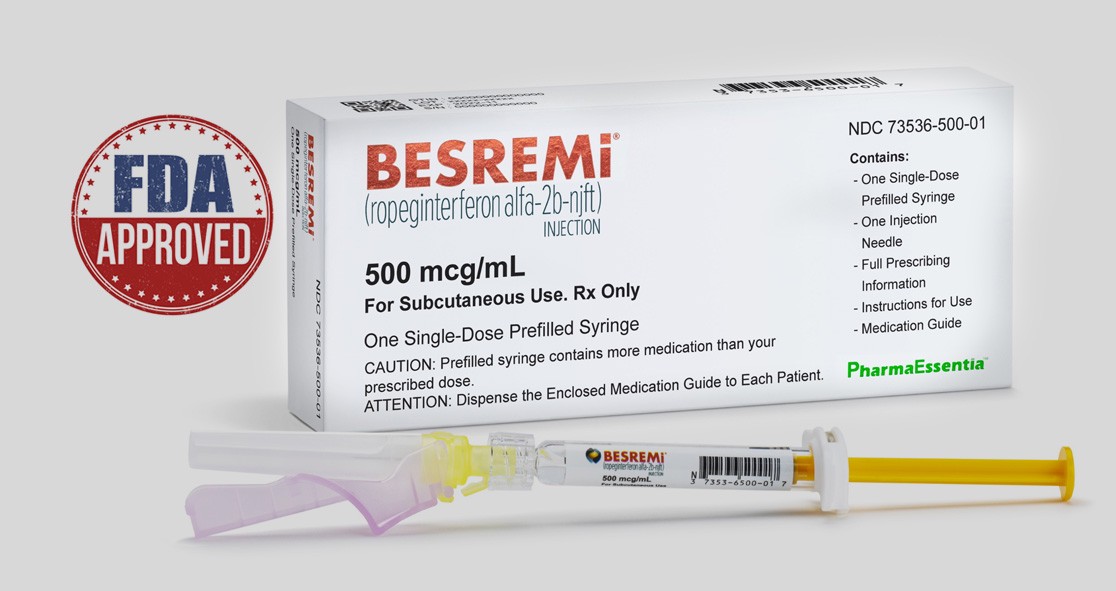The U.S. Food and Drug Administration has announced the approval of Besremi (ropeginterferon alfa-2b-njft) for the treatment of polycythemia vera, a type of blood cancer, in adults.
In polycythemia vera, the bone marrow makes too many red blood cells, eventually thickening your blood and slowing its flow, according to Mayo Clinic. It may cause serious problems, such as blood clots.
The condition usually develops slowly, and you might be asymptomatic for years. If left untreated, polycythemia vera can be life-threatening.
Besremi is a long-acting interferon drug, which is administered once every two weeks or longer. Once a patient reaches a stable complete hematologic response after a year of treatment, they can receive Besremi every four weeks.
The FDA approved the drug based on studies showing that 61% of patients with polycythemia vera experienced a complete hematological response after 7.5 years of treatment with Besremi. Additionally, 80% of patients achieved a hematological response.
Dr. SrdanVerstovsek of the University of Texas MD Anderson Cancer Center in Houston said in a news release, “The FDA approval of Besremi for people with polycythemia vera represents the next step in advancing patient care as it provides a critical addition to managing not only symptom burden and near-term complications, but also treating the cancer early, which may help reduce the risk of disease progression over time.”
“With the availability of an FDA-approved, next-generation interferon for this indication, it’s time that we focus on preserving the long-term health of patients with polycythemia vera,” he added.
Some of the most common side effects reported by patients who received Besremi were flu-like illness, joint stiffness, fatigue, pruritus, nasopharyngitis, and musculoskeletal pain.
Dr. Ko-Chung Lin, CEO of PharmaEssentia and the drug’s inventor, said, “As we begin working closely with the community to integrate this important treatment into clinical practice, we also continue to expand our scientific efforts to unlock the full potential of our pioneering molecule.”
AOP Orphan, Austria, and PharmaEssentia, Taiwan, agreed to arbitration over the licensing agreement.
Ann Brazeau, CEO and Founder of MPN Advocacy and Education International, said, “The reality of living with a rare and chronic cancer like polycythemia vera is that it is often under-recognized and the limited treatments available cannot properly address the disease beyond the symptoms.”
“Our community welcomes the FDA approval of a new treatment that has the potential to deliver what has been unavailable for so many patients hoping for a better outlook,” she added.





















